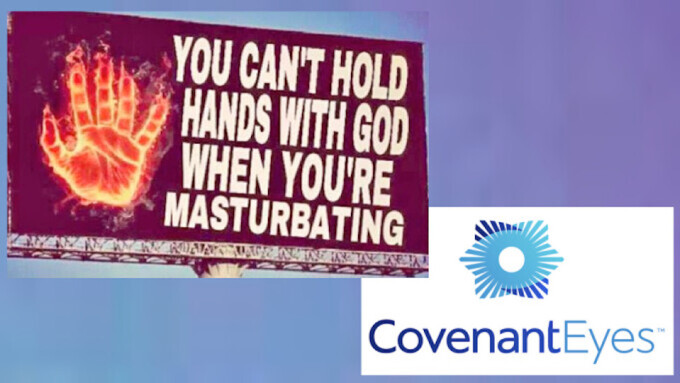NASHVILLE — Two religious surveillance apps marketed as “porn filters” to churchgoers across America by faith-based corporations are appealing a ban by the Google app store, which dropped the apps following a recent bombshell report by Wired magazine.
As XBIZ reported last month, Wired’s Security section reporter Dhruv Mehrotra exposed how “accountability software” niche firms Covenant Eyes and Accountable2You spied on churchgoers searches and then sent the information to religious leaders.
The two apps, Mehrotra wrote, are “part of a multimillion-dollar ecosystem of so-called accountability apps that are marketed to both churches and parents as tools to police online activity. For a monthly fee, some of these apps monitor everything their users see and do on their devices, even taking screenshots (at least one per minute, in the case of Covenant Eyes) and eavesdropping on web traffic.”
These church-endorsed and -marketed apps “then report a feed of all of the users’ online activity directly to a chaperone — an ‘accountability partner,’ in the apps’ parlance.”
After Wired presented its findings to Google, the search giant determined that Covenant Eyes and Accountable2You violated its privacy policies.
Christian news wire Baptist Press reported today that the apps are appealing the ban.
Jason Thacker, chair of research in technology ethics for the Southern Baptist Ethics & Religious Liberty Commission, told Baptist Press that he believes churches and religious employers “can use these tools but must do their due diligence to understand how they work, what is being collected, and who has access to it.”
Thacker added, “We must remember that the use of pornography is inherently a deeply intimate and isolating temptation, so these tools must be accompanied by trusted friends and transparent relationships, rather than simply being seen as a one-sided fix for a much deeper problem.”
Baptist Press also quoted former Republican operative and Mormon activist Dawn Hawkins, CEO of NCOSE — formerly Morality in Media — who offered that her anti-porn lobby has “heard from hundreds of people who have struggled with pornography addiction and dependencies that the best way most of them have found to help is through an accountability model, similar to AA (Alcoholics Anonymous) and many successful gambling recovery programs.”
Hawkins also claimed that “pornography can be highly addictive” and that research has “objectively identified a wide array of harms from pornography use.” However, scientists have found no basis for classifying pornography as an addiction; the idea seems instead to have arisen as a point of religious dogma in response to personal feelings of shame and guilt. The LDS Church has promoted “porn filters” in Utah and nationwide, based on church elders' theological belief that all porn — a term that for them encompasses all depictions of sexuality outside of the Mormon marriage — is a ploy by Satan to destroy Mormon households.
Moreover, Ron DeHaas, president and co-founder of Covenant Eyes, chairs NCOSE's board of directors.
DeHaas offers what he calls “accountability software” from a small office in Owosso, Michigan, located in the economically ravaged expanse between Flint and Lansing.








